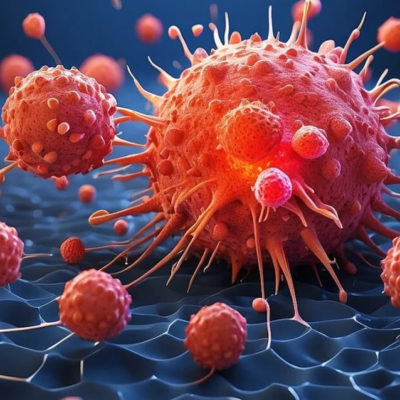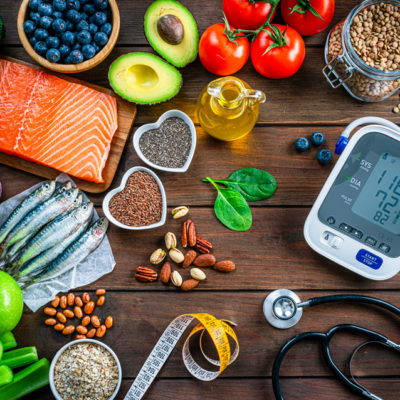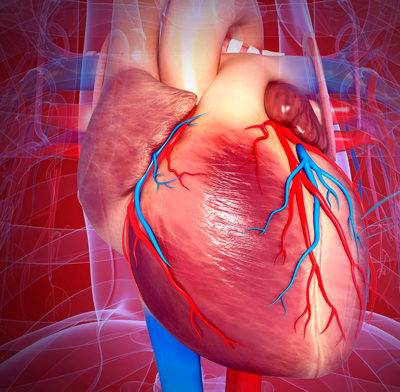Different types of cancer have unique molecular 'fingerprints' which are detectable in early stages of the disease and can be picked up with near-perfect accuracy by small, portable scanners in just a few hours, according to a study published today in the journal Molecular Cell. The discovery by researchers at the Centre for Genomic Regulation (CRG) in Barcelona sets the … [Read more...]
Keeping a Longer Overnight Fast and Eating an Early Breakfast may be Associated with a Lower Body Mass Index
According to a study published in the International Journal of Behavioral Nutrition and Physical Activity, there are two specific habits that are associated with a lower body mass index (BMI) in the long term: keeping a longer overnight fast and eating breakfast early. This research was led by the Barcelona Institute for Global Health (ISGlobal), a centre supported by the "la … [Read more...]
Sport-Related Stress may Affect Whether College Athletes eat Enough Calories
Studies have long shown that unhealthy attitudes about eating -- like desiring a thinner body or deliberately restricting caloric intake -- can lead to the underconsumption of nutrients, the team said. College athletes may face pressures to maintain specific body types for competitive reasons, so they can be especially vulnerable to these phenomena, according to the … [Read more...]
Swipe up! Health apps deliver real results en masse
In a new study, researchers synthesised data from 206,873 people across 47 studies, finding that digital health tools -- like mobile apps, websites, and text messages -- can significantly improve health and wellbeing by keeping you active, boosting steps, and improving your diet and sleep. Specifically, electronic and mobile health interventions can help people … [Read more...]
Pan-Cancer Analysis Uncovers a New Class of Promising CAR T-Cell Immunotherapy Targets
Targeting anti-cancer therapy to affect cancer cells but not healthy cells is challenging. For chimeric antigen receptor (CAR) T-cell immunotherapy, where a patient's own immune cells are re-engineered to attack cancer cells, many solid and brain cancers lack an effective target. St. Jude Children's Research Hospital scientists have identified 156 potential targets through a … [Read more...]
New Model Predicts How Shoe Properties Affect a Runner’s Performance
A good shoe can make a huge difference for runners, from career marathoners to couch-to-5K first-timers. But every runner is unique, and a shoe that works for one might trip up another. Outside of trying on a rack of different designs, there's no quick and easy way to know which shoe best suits a person's particular running style. MIT engineers are hoping to change that with … [Read more...]
Dietary Restriction Slows Brain Aging and Increases lifespan
Restricting calories is known to improve health and increase lifespan, but much of how it does so remains a mystery, especially in regard to how it protects the brain. Buck scientists have uncovered a role for a gene called OXR1 that is necessary for the lifespan extension seen with dietary restriction and is essential for healthy brain aging. "When people restrict the … [Read more...]
Reduced Blood Lead Levels Linked to Lower Blood Pressure
Through the Strong Heart Family Study, National Institutes of Health-supported researchers found that small declines in blood lead levelswere associated with long-term cardiovascular health improvements in American Indian adults. Participants who had the greatest reductions in blood lead levels saw their systolic blood pressure fall by about 7 mm Hg, an amount comparable to the … [Read more...]
Epigenetic Therapy Shows Promise for Endocrine-Resistant Breast Cancer
Using a low dose of the epigenetic therapy drug decitabine, which is currently used to treat some blood cancers, the researchers significantly suppressed the growth of endocrine-resistant breast tumours in mice and increased survival time by 90%. The finding, which will be tested in a future Phase I clinical trial, is a potential gamechanger for the more than 4,000 people who … [Read more...]
How Pre- and Postnatal B-12 Vitamins Improve Breast Milk Which Supports Infant Brain Development
Babies and children need vitamins, including vitamin B-12, to help their brains and bodies develop and grow. Babies get B-12 from their mothers and can have low levels of B-12 if their mothers had low vitamin levels during pregnancy and breastfeeding. The vitamin B-12 levels of infants strongly depend on maternal levels. Adequacy of vitamin B-12 in breast milk is particularly … [Read more...]
Obesity Leads to a Complex Inflammatory Response Inside Fat Tissue
Fat tissue, for as much as it's been vilified, is an incredibly complex and essential bodily organ involved in energy storage and hormone production, among other functions. Yet, modern lifestyles have led to a worldwide epidemic of obesity, and a corresponding increase in related conditions like type 2 diabetes and cardiovascular disease. Researchers are attempting to … [Read more...]
Calorie Restriction In Humans Builds Strong Muscle and Stimulates Healthy Aging Genes
Reducing overall calorie intake may rejuvenate your muscles and activate biological pathways important for good health, according to researchers at the National Institutes of Health and their colleagues. Decreasing calories without depriving the body of essential vitamins and minerals, known as calorie restriction, has long been known to delay the progression of age-related … [Read more...]
Can’t Stop Binging on Fries and BBQ?
People overeat and become overweight for a variety of reasons. The fact that flavorful high-calorie food is often available nearly everywhere at any time doesn't help. Buck researchers have determined for the first time why certain chemicals in cooked or processed foods, called advanced glycation end products, or AGEs, increase hunger and test our willpower or ability to make … [Read more...]
Both High-Protein and Normal-Protein Diets are Effective For T2D Management
Published in the journal Obesity, 106 adults with T2D were randomly assigned to either the high-protein or normal-protein diet for 52 weeks. Both diets were energy-restricted. The high-protein diet included recommendations to include lean beef in the diet, while the normal-protein diet instructed participants to refrain from eating any red meats. The team of researchers found … [Read more...]
Adults With Multiple Kids Engage in Significantly Less Vigorous Physical Activity
Physical activity is a crucial component of a healthy lifestyle, yet only one in three adults in the United States meets the weekly recommendation for exercise. The struggle to stay fit is complicated even further for parents, who often prioritize their children's needs over their own. A new study, titled "The Association between Adult Sport, Fitness, and Recreational … [Read more...]
Women treated for breast cancer may age faster than cancer-free women
Women diagnosed and treated for breast cancer have increased biological aging compared to women who remain free of breast cancer, according to a new study by researchers at the National Institutes of Health and their collaborators. Among women diagnosed with breast cancer, the association with faster biological aging was most pronounced for those who received radiation therapy, … [Read more...]
Scientists Chart How Exercise Affects The Body
Exercise is well-known to help people lose weight and avoid gaining it. However, identifying the cellular mechanisms that underlie this process has proven difficult because so many cells and tissues are involved. In a new study in mice that expands researchers' understanding of how exercise and diet affect the body, MIT and Harvard Medical School researchers have mapped out … [Read more...]
Muscle Models Mimic Diabetes, Inform Personalized Medicine
Abnormally high blood sugar (glucose) levels can result in Type 2 diabetes when things go awry with the body's skeletal muscle, which plays a key role in regulating glucose. Scientists are using in vitro (in a dish) skeletal muscle engineering to gain a better understanding of the complex genetic and environmental factors underlying diabetes. This involves putting lab-grown, … [Read more...]
Dental Biorhythm is Associated with Adolescent Weight Gain, Study Finds
An international research team led by Dr Patrick Mahoney at Kent's School of Anthropology and Conservation discovered the biorhythm in primary 'milk' molars (Retzius periodicity [RP]) is related to aspects of physical development during early adolescence. A faster dental biorhythm produced smaller gains in weight and mass. RP forms through a circadian-like process, occurring … [Read more...]
Study Uncovers Differences in Saliva Bacteria of Students with Recent Suicidal Thoughts
While there is a growing body of research on mental health and the human microbiome, this is the first study to look at bacterial differences in the saliva of those with and without recent suicidal thoughts, also called suicidal ideation. Recent suicidal ideation was defined as thoughts of suicide within the two weeks before the saliva sample was taken. Controlling for the … [Read more...]
Leisure Time Activities may Lower Risk of Death for Older Adults
Older adults who participate weekly in many different types of leisure time activities, such as walking for exercise, jogging, swimming laps, or playing tennis, may have a lower risk of death from any cause, as well as death from cardiovascular disease and cancer, according to a new study led by researchers at the National Cancer Institute, part of the National Institutes of … [Read more...]
COVID-19 linked to Complications During Pregnancy, Study Finds
Women who have Covid-19 towards the end of their pregnancy are vulnerable to birth-related complications. They are more likely to have complications than those who get Covid-19 in the earlier stages of pregnancy or who haven't had Covid-19 at all. The findings show that preterm births, stillbirths and newborn deaths are more common among women who have the virus 28 … [Read more...]
Ranking Healthfulness of foods from first to worst
A scientific team at the Friedman School of Nutrition Science and Policy at Tufts has developed a new tool to help consumers, food companies, restaurants, and cafeterias choose and produce healthier foods and officials to make sound public nutrition policy. Food Compass is a new nutrient profiling system, developed over three years, that incorporates cutting-edge science … [Read more...]
Night Shift Work is linked to Increased Risk of Heart Problems
People who work night shifts are at increased risk of developing an irregular and often abnormally fast heart rhythm called atrial fibrillation (AF), according to research published in the European Heart Journal. The study is the first to investigate the links between night shift work and AF. Using information from 283,657 people in the UK Biobank database, researchers found … [Read more...]
New Biomarkers may Detect Early Eye Changes that can lead to Diabetes-Related Blindness
New biomarkers found in the eyes could unlock the key to helping manage diabetic retinopathy, and perhaps even diabetes, according to new research conducted at the Indiana University School of Optometry. During its early stages, diabetes can affect the eyes before the changes are detectable with a regular clinical examination. However, new retinal research has found that … [Read more...]
C.D.C. Internal Report Calls Delta Variant as Contagious as Chickenpox
The Delta variant is much more contagious. More likely to break through protections afforded by the vaccines and may cause more severe disease than all other known versions of the virus, according to an internal presentation circulated within the Centers for Disease Control and Prevention. Dr. Rochelle P. Walensky, the director of the agency, acknowledged on Tuesday … [Read more...]
How the Brain Paints the Beauty of a Landscape
How does a view of nature gain its gloss of beauty? We know that the sight of beautiful landscapes engages the brain's reward systems. But how does the brain transform visual signals into aesthetic ones? Why do we perceive a mountain vista or passing clouds as beautiful? A research team from the Max Planck Institute for Empirical Aesthetics has taken up this question and … [Read more...]
People Who Eat a Healthy Diet Including Whole Fruits May be Less Likely to Develop Diabetes
A new study finds people who consume two servings of fruit per day have 36 percent lower odds of developing type 2 diabetes than those who consume less than half a serving. The research was published in the Endocrine Society's Journal of Clinical Endocrinology & Metabolism. Diabetes is a disease where people have too much sugar in their bloodstream, and it is a huge … [Read more...]
‘Prescription’ to Sit Less, Move more Advised for Mildly High Blood Pressure and Cholesterol
A "prescription" to sit less and move more is the optimal first treatment choice for reducing mild to moderately elevated blood pressure and blood cholesterol in otherwise healthy adults, according to the new American Heart Association scientific statement published today in the American Heart Association's journal Hypertension. "The current American Heart Association … [Read more...]
Research Advances One Step Closer to Stem Cell Therapy for Type 1 Diabetes
Type 1 diabetes, which arises when the pancreas doesn't create enough insulin to control levels of glucose in the blood, is a disease that currently has no cure and is difficult for most patients to manage. Scientists at the Salk Institute are developing a promising approach for treating it: using stem cells to create insulin-producing cells (called beta cells) that could … [Read more...]





























